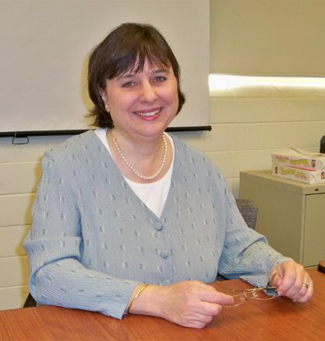
|
UMass Medical School youth mental health career services expert Marsha Ellison, PhD, is co-project director for a new national center that will bolster efforts to improve employment outcomes for people with disabilities, including those with serious mental illness.
A five-year, $2.5 million grant from the National Institute on Disability Independent Living and Rehabilitation Research will help establish the Center on Knowledge Translation on Employment Research. CeKTER will provide support and technical assistance to employment researchers who interface with disability-serving agencies nationwide.
“At the Implementation Science & Practice Advances Research Center, we have been focusing on strategies to get evidence-based practices into use by frontline service providers,” said Dr. Ellison, associate professor of psychiatry and director of knowledge translation for the iSPARC Transitions to Adulthood Center for Research at UMMS. “With this center we will be able to train, provide technical assistance and build collaborations to increase adoption and use of evidenced-based research by disability employment stakeholders.”
CeKTER is an outgrowth of the iSPARC focus on implementation science and knowledge translation. The Transitions to Adulthood Center for Research addresses real life issues for young people with mental illness who are trying to navigate their way to social, academic and career success.
“These knowledge translation activities have resulted in dissemination of tip sheets, issue briefs, posters and presentations that have already been downloaded tens of thousands of times around the world,” Ellison said. “The national center will help create new products in co-production with local NIDILLR grantees.”
In one example, an advisory board of about 10 people who are family members of a person with a serious mental health condition along with representatives from family groups, including the National Alliance for Mental Illness, have worked very closely with iSPARC to create videos and tip sheets that are relevant to them.
“They’re very meaningful to families because families made them,” Ellison noted.
Ellison is collaborating on CeKTER with lead grantee and project co-director Marianne Farkas, ScD, clinical professor and director of training, dissemination and technical assistance for the Boston University Sargent College of Rehabilitation Sciences Center for Psychiatric Rehabilitation.
“This initiative is a very nice outcome of years of effort to develop our collective capacity and demonstrate our leadership,” Ellison said. “We are now bringing together the researchers and the end user stakeholders to work hand in hand so that useful and practical research findings reach the community.”
Related stories on UMassMed News:
UMass Medical School improving employment prospects for youth with mental health disabilities
New grant to help teens with psychiatric disabilities become successful adults